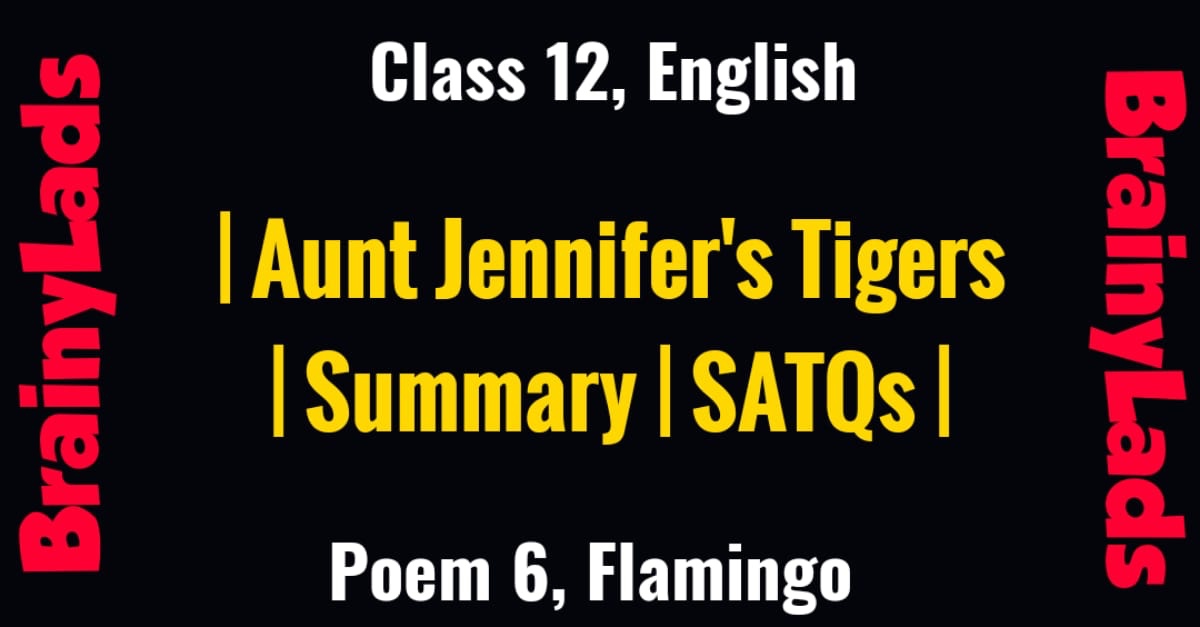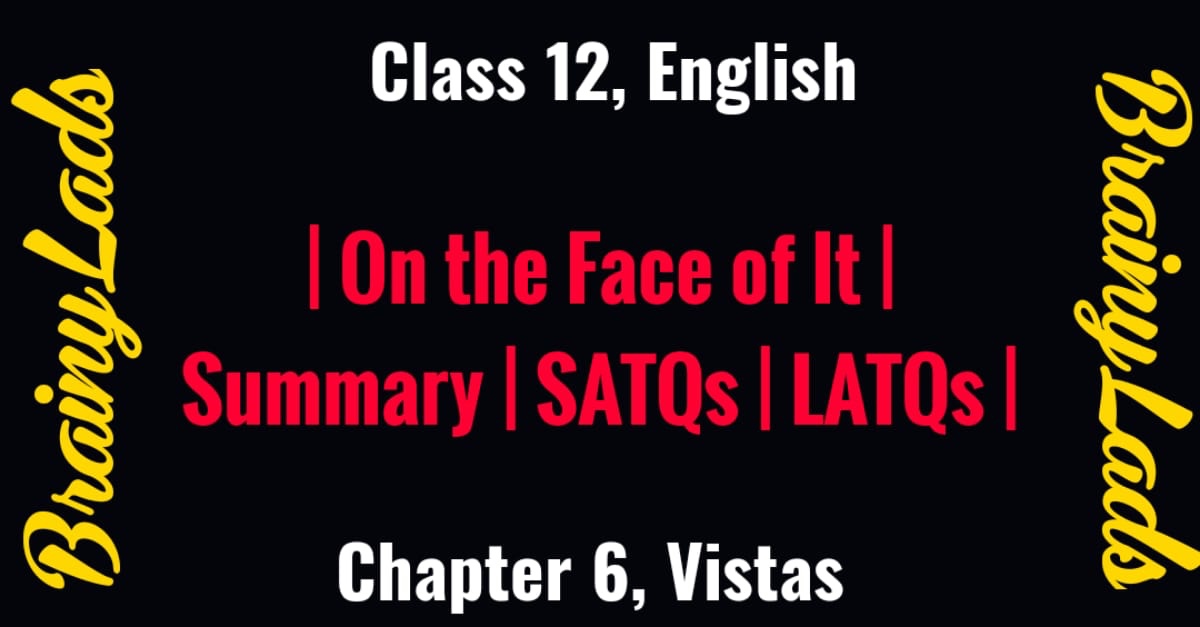Extracts of Indigo | Louis Fischer | Chapter 5 | Flamingo | Class XII |
Table of Contents
Extracts of Indigo by Louis Fischer, Chapter 5, Flamingo, Class XII
Extract 1
1. There Shukla led him to the house of a lawyer named Rajendra Prasad who later became President of the Congress party and of India. Rajendra Prasad was out of town, but the servants knew Shukla as a poor yeoman who pestered their master to help the indigo sharecroppers. So they let him stay on the grounds with his companion, Gandhi, whom they took to be another peasant. But Gandhi was not permitted to draw water from the well lest some drops from his bucket pollute the entire source; how did they know that he was not an untouchable?
a) What does the word ‘Yeoman’ mean?
• Man holding and cultivating a small land
• Man who looks at others repulsively
• Man who bothers everyone
• None of these
b) Name the author of this chapter.
• Louis Updike
• Louis Fishing
• Louis Fischer
• Louis Fisherman
c) Why was Gandhi not permitted to draw water from the well?
• For he was considered as a touchable
• For he was considered as an untouchable
• For he was accompanied by Gandhi ji
• None of these
d) Whom was Gandhi accompanied by?
• Louis Updike
• Raj Kumawat Shukla
• Raj Kumar Shukla
• Kasturbai Gandhi
Answers :
| a. Man holding and cultivating a small land | b. Louis Fischer | c. For he was considered as an untouchable | d. Raj Kumar Shukla |
We would love your reading of Formal Letters, Notice Writing, Formal & Informal Invitation, Classified Advertisement, Debate Writing, Speech Writing, Article Writing, Report Writing, Note Making, Poster Making, Short Story Writing, Leave Application Writing, Descriptive Paragraph Writing for scoring higher in upcoming examination.
Extract 2
2. The chief commercial crop was indigo. The landlords compelled all tenants to plant three twentieths or 15 per cent of their holdings with indigo and surrender the entire indigo harvest as rent. This was done by long-term contract. Presently, the landlords learned that Germany had developed synthetic indigo. They, thereupon, obtained agreements from the sharecroppers to pay them compensation for being released from the 15 per cent arrangement. The sharecropping arrangement was irksome to the peasants, and many signed willingly. Those who resisted, engaged lawyers; the landlords hired thugs.
a) What is synthetic?
• Man-made
• Artificial
• Unreal
• All of these
b) What does the word ‘Irksome’ mean?
• Annoying
• Bothersome
• Teasing
• All of these
c) Why did the landlords hire thugs?
• To collect money from the poor peasants
• To show their supremacy
• To show their goons
• To collect indigo from the poor peasants
d) Name the chapter.
• Indigo
• On the Face of It
• The Enemy
• Should Wizard Hit Mommy
Answers:
| a. All of these | b. All of these | c. To collect money from the poor peasants | d. Indigo |
Related
Extract 3
3. When I first visited Gandhi in 1942 at his ashram in Sevagram, in central India, he said, “I will tell you how it happened that I decided to urge the departure of the British. It was in 1917.” He had gone to the December 1916 annual convention of the Indian National Congress party in Lucknow. There were 2,301 delegates and many visitors. During the proceedings, Gandhi recounted, “a peasant came up to me looking like any other peasant in India, poor and emaciated, and said, ‘I am Rajkumar Shukla. I am from Champaran, and I want you to come to my district’!’’ Gandhi had never heard of the place. It was in the foothills of the towering Himalayas, near the kingdom of Nepal.
a) Who is ‘I’ in the above lines?
• Raj Kumar Shukla
• Louis Fischer
• Rajender Prasad
• Brij Kishore Baba
b) Where was Champaran located?
• At the bottom of Himalayas
• At the front of Himalayas
• At the backyard of Himalayas
• None of these
c) What does the word ‘Emaciated’ imply?
• Very thin
• Samson
• Bruiser
• All of these
d) What does Gandhi mean by ‘Urge the departure’?
• Force the departure
• Push the departure
• Exhort the departure
• All of these
Answers:
| a. Louis Fischer | b. At the bottom of Himalayas | c. Very thin | d. All of these |
Related
Extract 4
4. The news of Gandhi’s advent and of the nature of his mission spread quickly through Muzzafarpur and to Champaran. Sharecroppers from Champaran began arriving on foot and by conveyance to see their champion. Muzzafarpur lawyers called on Gandhi to brief him; they frequently represented peasant groups in court; they told him about their cases and reported the size of their fee. Gandhi chided the lawyers for collecting big fee from the sharecroppers.
a) Why did Gandhi scold the lawyers?
• For charging low fee
• For charging modest fee
• For charging no fee
• None of these
b) Why was there a huge multitude of people?
• To see their hero
• To see off their hero
• To bid farewell to their hero
• All of these
c) The word ‘Multitude’ shows …..
• The large number
• The fewer number
• The less number
• None of these
d) Where is Muzzafarpur located?
• Bihar
• Uttar Pradesh
• Ahemdabad
• Lucknow
Answers:
| a. None of these | b. To see their hero | c. The large number | d. Bihar |
Extract 5
5. A report came in that a peasant had been maltreated in a nearby village. Gandhi decided to go and see; the next morning he started out on the back of an elephant. He had not proceeded far when the police superintendent’s messenger overtook him and ordered him to return to town Gandhi complied. The messenger drove Gandhi home where he served him with an official notice to quit Champaran immediately. Gandhi signed a receipt for the notice and wrote on it that he would disobey the order.
a) Why was the poor peasant maltreated?
• For he was ready to pay the money
• For he was not ready to pay the money
• For he was challenging the landlords for not paying the money
• All of these
b) What did the messenger want Gandhi to do?
• To stay in Champaran
• To quit Champaran
• To disobey the order of the court
• all of these
c) What does the word ‘Disobey’ mean?
• Refuse to accompany
• Refuse to follow
• Refuse to get down from elephant
• Refuse to go to police station
d) Which of the following word is the substitute of ‘Seat on the back of an Elephant’?
• Howdah
• Bridle
• Throne
• All of these
Answers:
| a. For he was not ready to pay the money | b. To quit Champaran | c. Refuse to follow | d. Howdah |
Extract 6
6. The government was baffled. The prosecutor requested the judge to postpone the trial. Apparently, the authorities wished to consult their superiors. Gandhi protested against the delay. He read a statement pleading guilty. He was involved, he told the court, in a “conflict of duties”— on the one hand, not to set a bad example as a lawbreaker; on the other hand, to render the “humanitarian and national service” for which he had come. He disregarded the order to leave, “not for want of respect for lawful authority, but in obedience to the higher law of our being, the voice of conscience”. He asked the penalty due.
a) Why was the government baffled?
• For they had no prosecutor to speak
• For they were able to regulate the crowd
• For they were unable to regulate the crowd
• None of these
b) Who is a prosecutor?
• A government official who conducts criminal prosecutions on behalf of the state
• A private official who conducts criminal prosecutions on behalf of the state
• A government official who conducts criminal prosecutions on behalf of an individual
• All of these
c) Whose voice did Gandhi follow?
• Voice of humanity
• Voice of conscience
• Voice of his heart
• All of these
d) What does the phrase ‘want of’ imply?
• State of needing something that is unavailable
• State of needing something that is available
• State of needing something that is neither unavailable nor available
• None of these
Answers:
| a. For they were unable to regulate the crowd. | b. A government official who conducts criminal prosecutions on behalf of the state | c. Voice of conscience | d. State of needing something that is unavailable |
Extract 7
7. ‘‘The battle of Champaran is won,’’ he exclaimed. Then he took a piece of paper and divided the group into pairs and put down the order in which each pair was to court arrest. Several days later, Gandhi received a written communication from the magistrate informing him that the Lieutenant-Governor of the province had ordered the case to be dropped. Civil disobedience had triumphed, the first time in modern India.
a) Who said “The battle of Champaran is won”?
• Gandhi
• RK Shukla
• Louis Fischer
• Rajendra Prasad
b) What does ‘Civil disobedience’ mean?
• Refusal of citizens to follow a law
• Refusal of citizens not to follow a law
• Refusal to justify in the court
• Refusal not to justify in the court
c) Why was the case dropped against Gandhi?
• Since he was guilty
• Since he was innocent
• Since he failed to justify himself in the court
• All of these
d) What does the speaker mean by the word ‘Triumphed’?
• Proved superior
• Prevailed
• Got the victory
• All of the above
Answers:
| a. Gandhi | b. Refusal of citizens not to follow a law | c. For he was innocent | d. All of the above |
Extract 8
8. Gandhi had four protracted interviews with the Lieutenant Governor who, as a result, appointed an official commission of inquiry into the indigo sharecroppers’ situation. The commission consisted of landlords, government officials, and Gandhi as the sole representative of the peasants. Gandhi remained in Champaran for an initial uninterrupted period of seven months and then again for several shorter visits.
a) Who was the Lieutenant Governor?
• Sir Edward Gate
• Sir Edward Gait
• Sir Edwards Gate
• Sir Edward Gates
b) What does the word ‘Sole’ imply?
• Alone
• Single
• Exclusive
• All of the above
c) Who all were the parts of the official commission?
• Gandhi, RK Shukla, Government officials
• Landlords, RK Shukla, Government officials
• Gandhi, RK Shukla, Private officials
• None of these
d) Find out the synonym of ‘Uninterrupted’ from the following.
• Ceaseless
• Perpetual
• Unceasing
• All of these
Answers:
| a. Sir Edward Gait | b. All of these | c. None of these | d. All of these |
Extract 9
9. “Thinking probably that he would not give way, the representative of the planters offered to refund to the extent of 25 per cent, and to his amazement Mr. Gandhi took him at his word, thus breaking the deadlock.” This settlement was adopted unanimously by the commission. Gandhi explained that the amount of the refund was less important than the fact that the landlords had been obliged to surrender part of the money and, with it, part of their prestige.
a) What was more important according to Gandhi?
• Money
• Respect
• Defame of British landlords
• All of these
b) What percentage of amount was asked for by Gandhi?
• 100 percent
• 50 percent
• 25 percent
• 40 percent
c) What does the word ‘Unanimously’ mean?
• Of one mind
• Without dissent
• In one voice
• All of these
d) Find out the synonym of the word ‘Obliged’ from the following.
• Duty-bound
• Under a moral obligation
• Compelled by duty
• All of these
Answers:
| a. Respect | b. 50 percent | c. All of these | d. All of these |
Extract 10
10. Three medicines were available — castor oil, quinine and sulphur ointment. Anybody who showed a coated tongue was given a dose of castor oil; anybody with malaria fever received quinine plus castor oil; anybody with skin eruptions received ointment plus castor oil. Gandhi noticed the filthy state of women’s clothes. He asked Kasturbai to talk to them about it. One woman took Kasturbai into her hut and said, ‘‘Look, there is no box or cupboard here for clothes. The sari I am wearing is the only one I have.”
a) What does the word ‘Filthy’ mean?
• Tattered
• Worn and torn
• Dirty
• All of these
b) What is ointment?
• Balm
• Salve
• Unction
• All of these
c) Under which conditions the people of Champaran live?
• Pathetic
• Miserable
• Hazardous
• All of these
d) What is the tone of the speaker in “The sari I am wearing is the only one I have?”
• Regret
• Repent
• Empathetic
• None of these
Answers:
| a. All of these | b. All of these | c. All of these | d. Regret |
Extract 11
11. Gandhi’s lawyer friends thought it would be a good idea for him to stay in Champaran and help them. He was willing if Gandhi agreed. But Gandhi was vehemently opposed. He said, ‘‘You think that in this unequal fight it would be helpful if we have an Englishman on our side. This shows the weakness of your heart. The cause is just and you must rely upon yourselves to win the battle. You should not seek a prop in Mr. Andrews because he happens to be an Englishman’’. ‘‘He had read our minds correctly,’’ Rajendra Prasad comments, “and we had no reply… Gandhi in this way taught us a lesson in self-reliance’’. Self-reliance, Indian independence and help to sharecroppers were all bound together.
a) Who is ‘He’ in the first few lines?
• C.R. Andrews
• C.F. Andrews
• C.D. Andrews
• None of these
b) Which lesson did Gandhi teach to his disciples?
• Self Reliance
• Self Reliant
• Self Relied
• All of these
c) What does Gandhi mean by ‘Seek a prop’?
• Try to find assistance
• Try to find support
• Try to find help
• All of these
d) He had read out minds correctly means…..
• He had understood them
• He had failed to understand their minds
• He had foreseen our dreams
• He had expected all to rebel
Answers:
| a. C.F. Andrews | b. Self Reliance | c. All of these | d. He had understood them |
We would love your reading of Indigo, Should Wizard Hit Mommy, On the Face of It, Evans Tries an O Level, The Rattrap, A Thing of Beauty, Aunt Jennifer’s Tigers for better understanding of the chapters and poems.
Do share this post if you liked the Extracts of Indigo. For more updates keep on logging Brainylads


